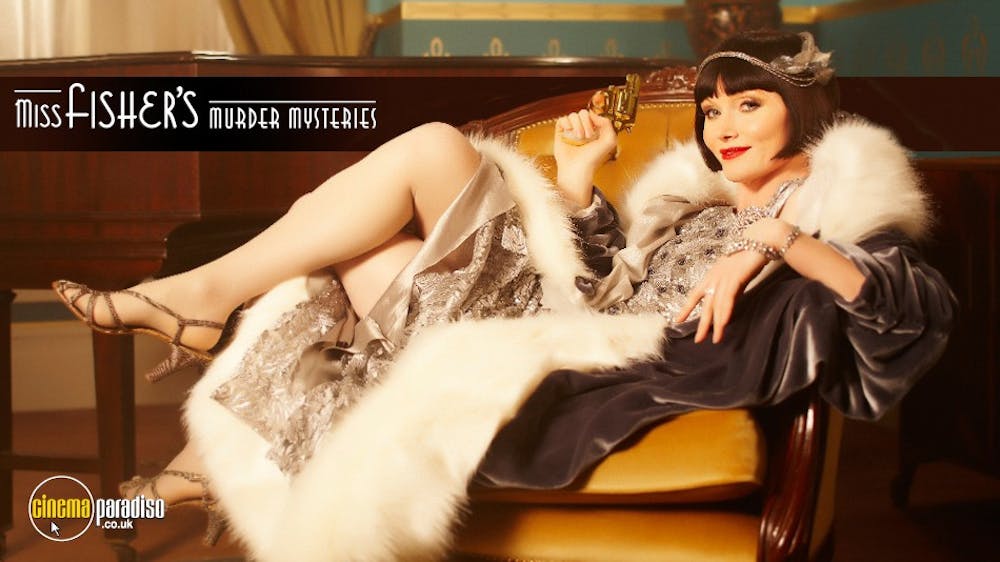In 1929, the “new woman” style is flourishing in Melbourne, Australia. Jazz and whiskey are flowing in equal parts. The Great War has been over for a decade, leaving many emotional wounds on Australians, a large number of whom gave their lives to the Allies’ cause. “Miss Fisher’s Murder Mysteries,” a gripping crime show created by Deb Cox and based on novels by Kerry Greenwood, sets this scene and throws a woman detective into the mix.
The plot begins with Miss Phryne — pronounced Fry-nee — Fisher (Essie Davis) sailing back to Australia from Europe in search of both a new life and the truth behind the disappearance of her sister. She is fabulous, nosy and a self-proclaimed troublemaker with an acute sense of justice. She dedicates her leisure time to becoming a private detective with remarkable confidence and style. Along with straight-faced Detective Inspector Jack Robinson (Nathan Page), who maintains an outward reluctance to her help but is secretly charmed by her antics, they form a crime-solving duo with impressive attention to detail and incredible chemistry. The show is a period-piece mystery with the playfulness of “Castle” and the wit of BBC’s “Sherlock.”
There are no cheesy one-liners to end scenes in “Miss Fisher’s,” à la “CSI” or “Law and Order” — the script instead shows creative investigations, flirty interactions and well-timed cohesion among characters, especially with the frustrating yet enticing relationship between Phryne and Jack. The balance struck perfectly between the two characters in the first two seasons starts to wane in the third, when the sexual tension becomes unrealistic. However, the show does not follow the same tropes as “Bones” or “Castle,” where the male and female leads begin in a dalliance and end up married — “Miss Fisher’s” toys with the will-they-or-won’t-they storyline but refuses to act on it.
Phryne’s fabulous lifestyle in “Miss Fisher’s” is still somehow relatable given the kernels of modern feminist advice she gives to her maid, Dot, and the relationships she forms with the rest of her staff. The butler and cab drivers are not merely present for comic relief, but they contribute to a loving family, giving new meaning to the phrase “supporting characters.”
Phryne is an inspiring protagonist who captivates and empowers others, as well as terrifies them with her fast driving, determined attitude and notable marksmanship. With Phryne and the show as a whole, there is never a dull moment — both are full of surprises, sometimes reckless and utterly unique.







